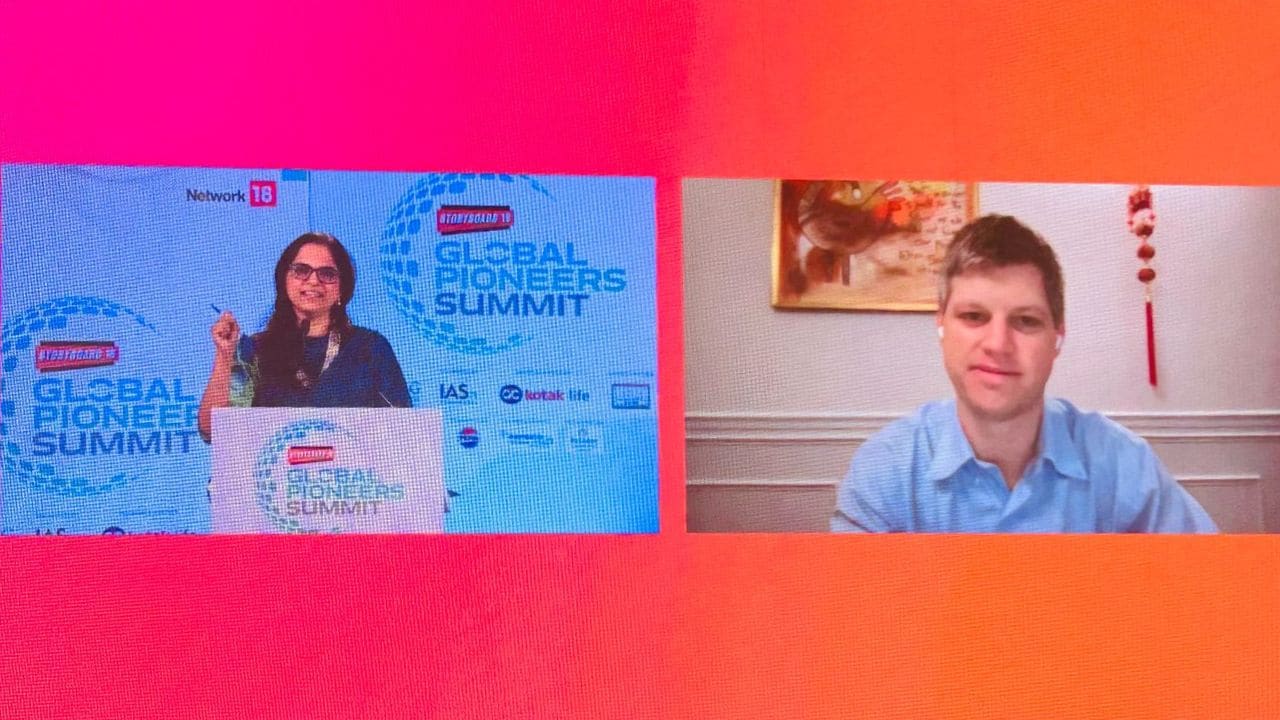The enduring value of deep reading remains as vital as ever in an era defined by the rapid consumption of digital content. At the Global Pioneers Summit 2025, Michael Sheldrick, author and co-founder of Global Citizen, highlighted the transformative power of books—not just in his own life, but as a tool for fostering critical thinking and meaningful societal progress. In conversation with author and columnist Reeta Ramamurthy Gupta, Sheldrick made the case for reading as a vehicle for both personal and global change.
For Sheldrick, books have never been merely a pastime; they have been a guidepost. He credited The Road Less Traveled by M. Scott Peck as a foundational influence, one that encouraged him to embrace unconventional paths. That philosophy ultimately led him to establish Global Citizen, an advocacy organization committed to tackling global challenges through activism and policy change.
“A book that truly resonated with me as I was finishing high school was The Road Less Traveled by M. Scott Peck,” Sheldrick said. “I struggled academically and athletically, often feeling like an outsider. But thanks to a teacher who believed in me, I made it to university to study law. That same teacher recommended The Road Less Traveled, which taught me about bravery, resilience, and the power of forging one’s own path. It became a source of comfort and clarity as I navigated law school and beyond.”
A key theme that emerged from the discussion was the importance of engaging with literature that challenges one’s own viewpoints. Sheldrick pointed to Churchill’s Shadow, a book that offers a critical perspective on Winston Churchill, as an example of how reading can strengthen critical thinking and prevent historical idolization. This, he noted, aligns with the philosophy of John Stuart Mill, who argued that ideas grow stronger when they are rigorously debated.
“It’s important to read about leaders you admire—not just to celebrate their triumphs, but to understand their flaws,” Sheldrick observed. “Society falters when we place individuals on pedestals without reckoning with their complexities. Churchill’s Shadow was eye-opening for me. Growing up with British parents, Churchill was revered in my household. But admiration must be accompanied by analysis. He stood firmly against fascism, but that does not absolve him of his missteps. As John Stuart Mill put it, our ideas gain strength when we challenge them.”
Sheldrick also cited Same as Ever by Morgan Housel, which posits that enduring success is rooted in understanding unchanging principles rather than chasing fleeting trends. This insight, he suggested, is equally relevant in business and activism, where piloting ideas before scaling them can help organizations avoid costly missteps.
Moreover, he stressed the fundamental role of storytelling in advocacy and marketing. According to Sheldrick, the ability to articulate an organization’s mission compellingly is crucial for engagement and impact. He invoked a guiding principle: “No one can do everything, but everyone can do something.”
In a nod to the evolving role of technology, Sheldrick acknowledged that artificial intelligence has the potential to enhance reading comprehension—but only if used judiciously. “AI can be a powerful tool for expanding our understanding, allowing us to wrestle with complex concepts more effectively,” he said. “But it shouldn’t be a shortcut. The data is clear: over-reliance on summaries and digital shortcuts can erode cognitive abilities, critical thinking, and even mental health, leading to anxiety and apathy. More than that, it strips away the joy of reading. There is something irreplaceable about the act of immersing oneself in a book, about disappearing into another world. That kind of happiness is not easily replicated.”
Ultimately, Sheldrick’s message was one of urgency and optimism: reading is not merely a habit, but a cornerstone of leadership and innovation. By engaging with diverse perspectives, focusing on enduring truths, and embracing the art of storytelling, individuals can equip themselves to become sharper thinkers and more effective leaders. In an age of fleeting information, books remain a steadfast source of wisdom and transformation.
More about the Storyboard18 Global Pioneers Summit
The Global Pioneers Summit is a celebration and exploration of the transformative potential of creativity, empowering individuals and businesses to think differently, act boldly, and craft a future that resonates with purpose and vision. Creativity is not just about artistic expression — it is a force for solving real-world problems, innovating products, and creating connections in ways that traditional methods cannot. And there are pioneers behind this shift, who have dared to think different.
The Global Pioneers Summit stands as a premier celebration of the visionary forces propelling businesses forward, spotlighting the global brands emerging from India — an ever-growing hub of creativity and innovation on the world stage.
From groundbreaking innovations to impactful storytelling, key decision-makers and innovators from business, marketing, advertising, tech, and academia exchange insights, build connections, and draw inspiration from some of the most compelling work driving industries forward globally.
In today’s rapidly evolving world, creativity can be a powerful force to drive business growth, shape industries, and influence societal behavior, culture, and values. Storyboard18 Global Pioneers Summit puts the spotlight on the true purpose and power of creativity and the pioneers leading the way.
